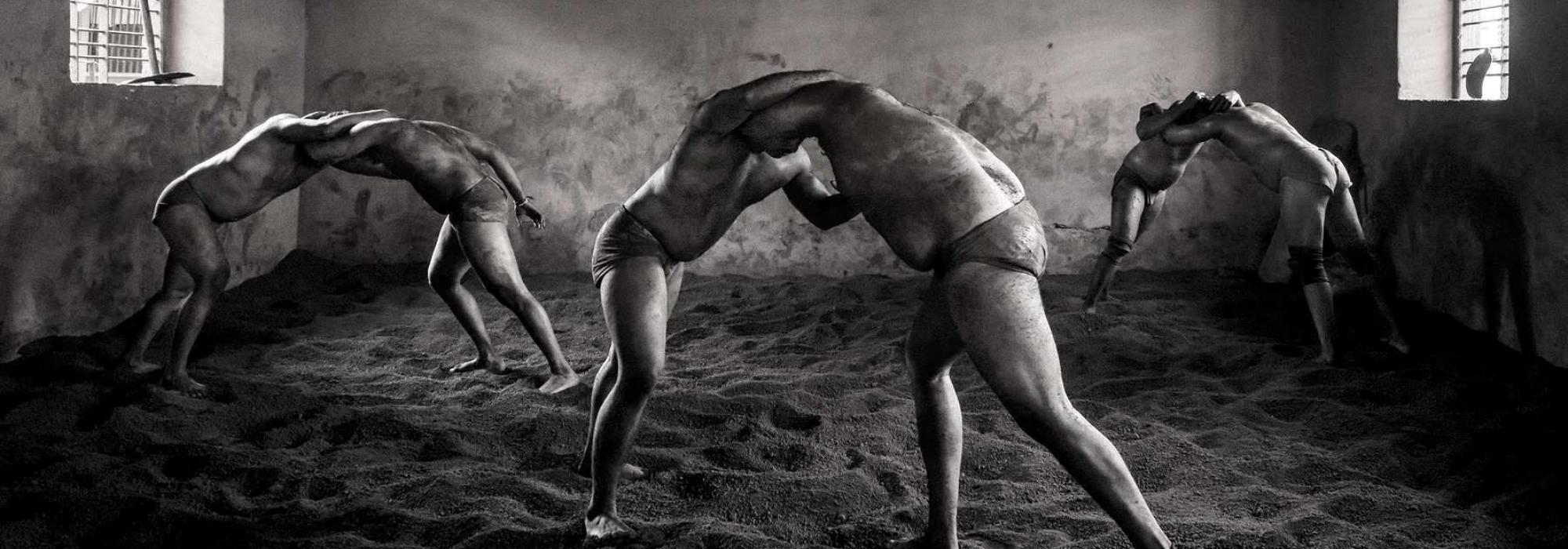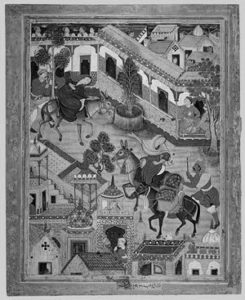The big problem with the system of republics is the constant infighting. Since their vision is so narrow, when there is an attack from an external enemy, these republics don't unite and offer resistance. It is for this reason an empire is necessary. But the problem with a kingdom or an empire is that the local and regional identities don't survive. An ideal kingdom should lay stress on the local as well as the pan national aspects. But how can this be achieved? This is indeed a big problem even in modern times. Today, everything is becoming globalized leaving us writhing in confusion. It's difficult to know what to embrace. A big question is how to remain 'local.' The problem of "How do we retain our-ness?" is haunting everyone. This is the basic self-esteem and pride required to retain myself for me. Without that, I cannot stand. But in the mad flood of globalization, there seems to be a danger of being washed away. At the moment, it is not possible to solve the problem; and neither can we ignore it. So what's the solution?
In Sanatana Dharma, we have the best of the answers available. We get an idea of this when we cast a glance at the daily sankalpas that we take [as part of the sandhya ritual]. Along with recognizing the current day, we also recognize the universal time; along with recognizing the place where we are, we also recognize the universal space. We say, "ममोपात्त समस्तदुरितक्षयद्वारा" and then say, "शुभे शोभने मुहूर्ते आद्य ब्रह्मणः द्वितीयपरार्धे" all the way up to the particular (current) day of performing the ritual. Similarly, starting from the cosmos, we come to "सप्तद्वीपवसुन्धरायाः मध्ये जम्बूद्वीपे नवखण्डात्मके देशे भारतवर्षे भरतखण्डे मेरोः दक्षिणे पार्श्वे गोदावर्याः दक्षिणे तीरे" in the sankalpa mantra. It is local to the extent of the individual situated in a specific time and at a specific place; but it also connects with the eternal time of the universe and eternal space of the cosmos.* These connections are made effortlessly, easily.
Apart from adhering to such wisdom, we have no other options. We have to connect the finite and the infinite as easily and as naturally as we breathe; we must enshrine in our hearts the idea of local and global. This is something that Chanakya had observed. Therefore, without destroying the local and the regional, he retained the national and the centralized. The question then arises as to when to value the local. It is possible only if we respect the established of the region and the clan -- aspects like varna, shreni, jati, nigama, and puga. If we want to discard all this, we will have nothing that holds the society together. In this sense, everyone needs a symbol, a marker. In this context, neither jati nor varna is wrong. Those who blindly advocate the purging of these concepts have purged their own wisdom within.
I am an advocate of the Advaita school of Vedanta. This is not merely a blind belief, but an adherence that has resulted from my learning and contemplation. I adhere to it and follow it. But in the material world, without Dvaita, Advaita is impossible; and without Advaita, Dvaita is incomplete. Till the time I have my reservations and biases or attachment to my body or a sense of ego, I have to respect and honour Dvaita. I have to recognize my identity as a person belonging to my family, my street, my locality, my town, my country, and so on. Even if we take the example of a sport like cricket, what does it mean to support a team in the Ranji Trophy or in the IPL? All these are ways in which we express our identity. Every individual strives to identify himself or herself in some manner, using a certain marker. But if we want this process of seeking identity not to be at the cost of losing our connection with infiniteness and eternity, then we must have a foot here and a foot there.
This is not a state of dilemma or fluctuation but rather a state of dynamic equilibrium. This is possible in Sanatana Dharma. This is the reason why a center of worship and meditation has around it a prosperous world of activity and dynamism. A wonderful example for this is Mahadeva as well as Mahavishnu. In the form of Dakshinarmurthy, Shiva is static; he sits under a Banyan tree and speaks not a word; he is absolutely silent. But in the form of Nataraja, Shiva is the embodiment of dynamism; dancing the seven tandavas, he pervades all directions and the Banyan tree grows everywhere; touching the ground in one instant and in the air at another, he inspires multiple identities. It's the same with Vishnu; lying on Adishesha, he is ever in yoga-nidra. Taking on several avataras, he comes into the world as if it were a sport (leela), and rides in a great procession among men. Of their two forms, one is static and the other is dynamic.
We can apply this even to the wave-particle paradox in Quantum Mechanics. This balance is essential for the kshaatra tradition. Kautilya had a vision of this. This concept is found in the Vedas themselves. It is because Chanakya firmly grasped this fundamental principle that he made provisions for all kinds of social and governance aspects in his Arthashastra. As we have mentioned earlier, the Vedas call a kshatriya as 'gopa.' Starting from a village headman called 'gopa,' for every village, Kautilya has clearly chalked out the roles and responsibilities of a leader, all the way up to the emperor, the king, and the supreme ruler. We also see this in our Dharmashastra literature. All the local customs and traditions must be respected and should not be violated. In the modern context, if people blindly harp on the tune of multiculturalism without paying heed to tradition, then just like the ancient republics, our country too will be destroyed. And this didn't happen just with the ancient republics in India; ancient Greece met with a similar fate.
* Typically, wherever we travel, our sankalpa mantras as part of our daily worship remain the same. But now, with many Hindus settled in different parts of the world like the US, Europe, or Australia, people have modified the sankalpa mantra as 'kraunchadvipe,' 'shakadvipe,' etc. There's nothing wrong with it. At the same time, retaining our own sankalpa mantras are also fine, since in the realm of feeling, we are in our homeland -- jambudvipe, bharatavarshe. Like the Kannada poet Kuvempu famously said, "Wherever you may be, however you may be, always be a Kannadiga."
To be continued.
Translated from the original Kannada by Hari Ravikumar. Translator's notes in square brackets.


















































